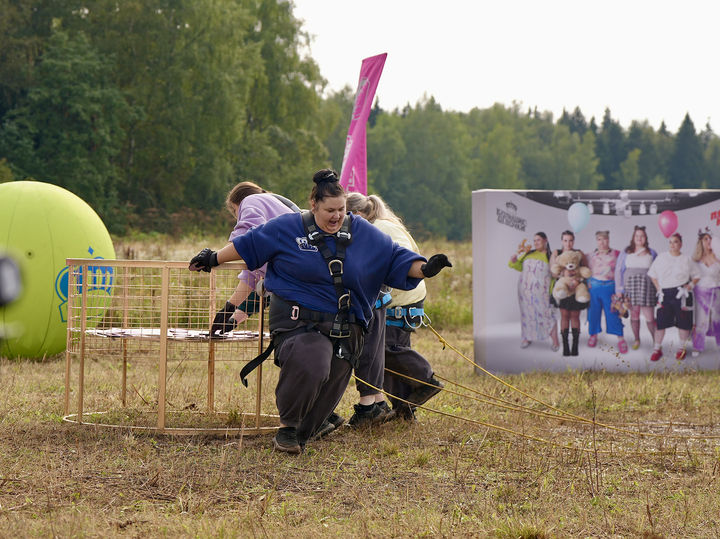In an era where streaming services dominate and content is ever-specialized, traditional television often finds itself at a crossroads. Yet, Russian airwaves continue to offer a fascinating, almost contradictory, tapestry of programming – a weekly review revealing a world where nostalgic pop-culture, raw social commentary, and highbrow cinematic art coexist, sometimes uncomfortably, always intriguingly.
The Enduring Echo of the Nineties: A Resilient Pop Culture Legacy
The 1990s in Russia are often depicted in stark, gritty tones within cinematic productions, recalling an era of upheaval and uncertainty. Films and series like “Likhie” (The Fierce) or “Deti Peremen” (Children of Change) tend to paint a bleak landscape, fraught with challenges. However, step into the realm of musical entertainment, and a decidedly different narrative emerges: one of fond reminiscence and enduring cheer.
Take, for instance, the recent episode of “Secret to a Million” featuring Lera Kudryavtseva, a veteran TV host, interviewing Andrey Grigoriev-Appolonov, affectionately known as “Ryzhij” (Red-haired) from the iconic boyband “Ivanushki International.” This wasn`t merely an interview; it was a potent antidote to the cinematic gloom, a vibrant throwback to an era that, for many, was defined by its vibrant pop music.

Both Kudryavtseva and Grigoriev-Appolonov began their careers in the nascent entertainment industry of the nineties. They faced early criticisms – accusations of lacking talent, of merely copying Western trends, of being fleeting “one-hit wonders.” Yet, three decades later, they stand as testaments to resilience. Kudryavtseva remains a prominent figure on federal airwaves, often outshining newer, less experienced personalities. “Ivanushki International,” far from being a one-day sensation, continues to tour, inspire screenwriters, and draw large crowds to tribute concerts, their once “primitive” hits now seen as beloved classics. It seems that while cinema delights in the `nightmares` of the nineties, pop culture simply embraces the `cheerful` ones.
The Unvarnished Mirror: Reality TV and the Body Positivity Conundrum
Shifting gears entirely, another segment of Russian television delves into the raw, often uncomfortable realities of modern life. The new season of “Big Girls,” a weight-loss reality show, introduces a compelling twist: participants embark on their journey to fitness alongside their mothers. This familial dynamic quickly exposes deeper, systemic issues.

Much like its predecessor, “The School” – which sought to re-educate “difficult” teenagers by involving their parents and often revealed the parents as the root of the problem – “Big Girls” illuminates the complex origins of weight issues. It`s not always about an extra cookie; often, it`s a reflection of deeper emotional turmoil or, as starkly illustrated by one participant, the grim reality of poverty where a “macaroni diet” is a matter of economic necessity for a single mother raising multiple children.
While the show has faced criticism for its intense training methods and perceived exploitation of human struggle for ratings, it inadvertently achieves something far more profound: a swift and brutal demolition of the body positivity myth. Despite endless rhetoric about self-acceptance, fashionable clothing for all sizes, and unaffected personal lives regardless of scale readings, the show`s narrative underscores a harsh truth. Fashion houses, despite their progressive pronouncements, rarely cater to larger sizes. And experts continue to reiterate: excess weight remains a threat to a normal life, and “slim” individuals generally navigate society with greater ease, in almost every conceivable sense. The inclusivity narrative, in this context, begins to sound suspiciously like mere political correctness, a polite euphemism for a reality that is anything but. The project, whether intentionally or not, reveals the often-painful price of attempting to undo the consequences of childhood and youth.
A Glimpse into Artistic Vision: Orson Welles` Unlikely TV Appearance
Amidst the structured chaos of reality television and the warm glow of nostalgia, Russian screens recently offered an unexpected intellectual treat. Sandwiched between a children`s talent show and a series of podcasts, a documentary on the legendary director George Orson Welles graced the airwaves. “Through the Eyes of Orson Welles,” a critically acclaimed British documentary (Special Mention at Cannes in 2018), provided a deep dive into the mind of one of American cinema`s most influential visionaries.
Welles, celebrated for masterpieces like “Citizen Kane” and “Touch of Evil,” was also an avid artist. The film masterfully explores how his drawings informed and manifested in his cinematic oeuvre, revealing the genesis of his iconic visual style: the specific camera angles, the use of mirror reflections, and shadows that became integral to the set. These techniques, which deeply impressed filmmakers from Fellini to von Trier, are now staples of cinematic language.
While visual experimentation is an inherent part of narrative cinema – or at least, it used to be, before films became mere background noise on handheld devices – such artistic daring is a rare find in documentary filmmaking on mainstream television. Director Mark Cousins, however, delivered a visually stunning experiment. The broadcast of such a film on national television, bypassing the usual academic dryness often associated with “high-brow lectures,” felt invigorating, like a celebratory glass of sparkling wine on a Friday night. It serves as a surprising, yet welcome, reminder that Russian television, occasionally and without a hint of irony, still endeavors to enlighten.
Conclusion: The Dynamic Tapestry of Russian Television
From the cheerfully remembered nineties to the stark realities of contemporary weight struggles, and the unexpected, intellectual dive into the world of cinematic genius, Russian television presents a multifaceted identity. It`s a space where different eras, social commentaries, and artistic endeavors converge, reflecting a society that simultaneously cherishes its past, grapples with its present, and occasionally, and beautifully, aspires to elevate the cultural discourse. This eclectic mix ensures that, for better or worse, the screens remain a captivating, if sometimes bewildering, window into the soul of a nation.








